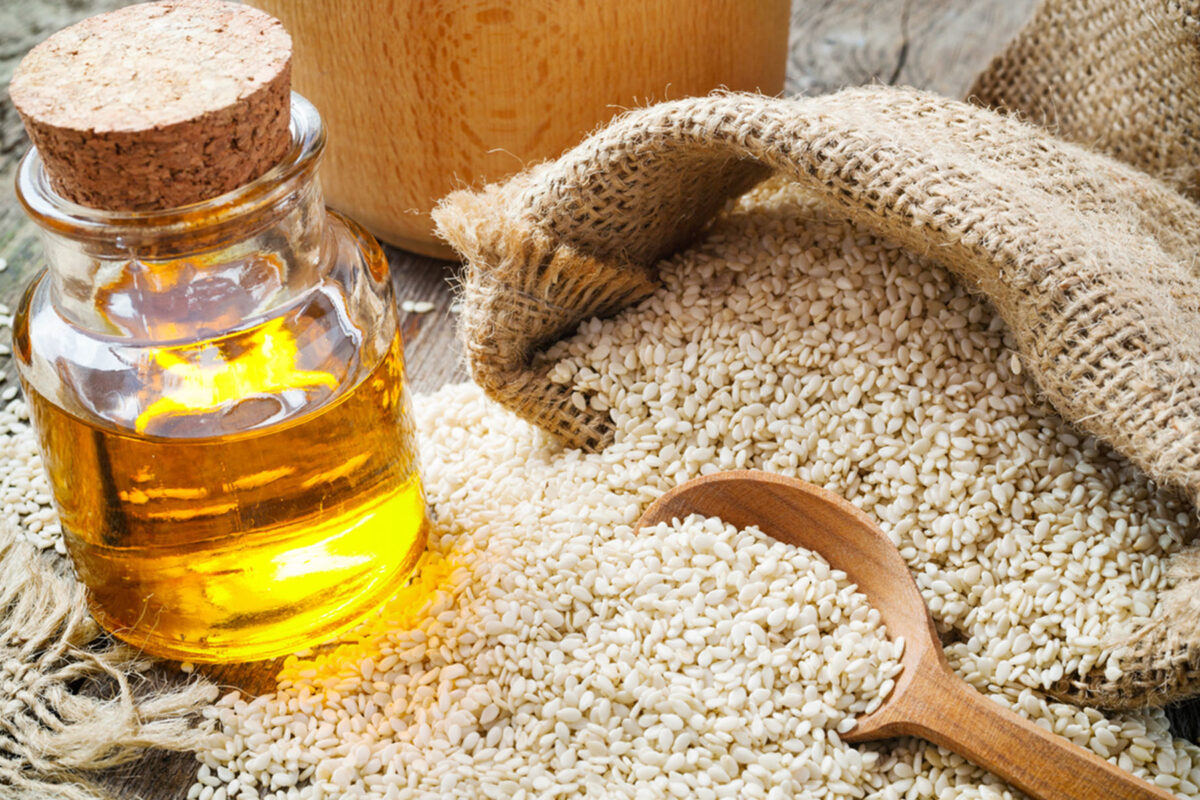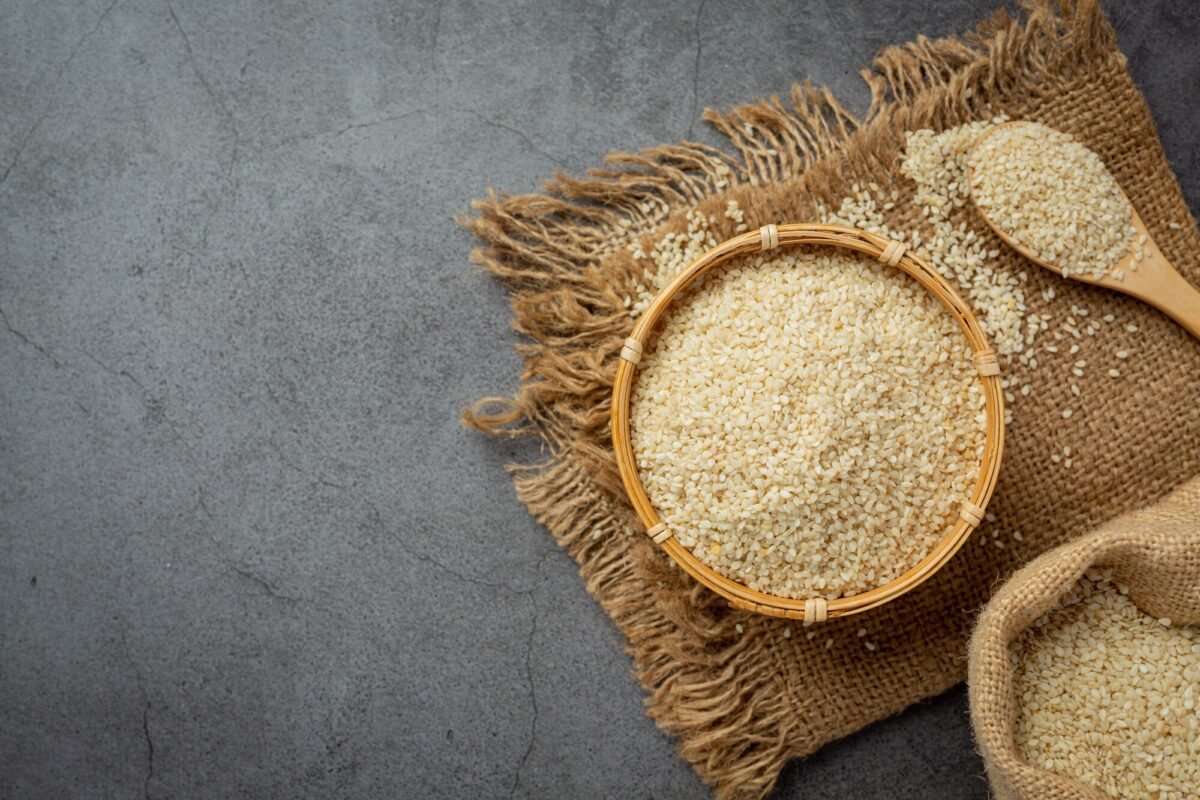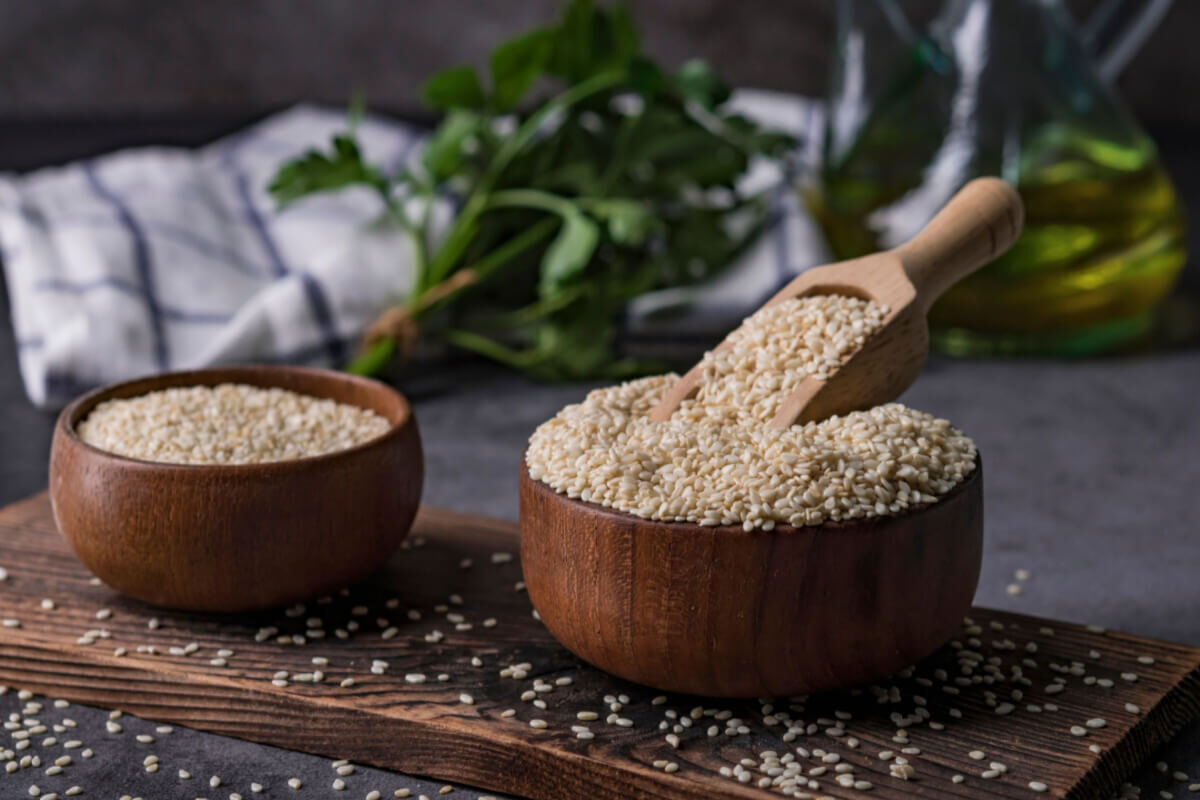Bottom Line:
Step into a world of taste and health with our handpicked sesame seed recipes. Nutrient-rich and delicious, these recipes will not only satiate your palate but also infuse you with essential nutrients.
Sesame seeds, the tiny yet mighty food elements, are popular in cuisines worldwide for their nutty taste and significant health benefits. Packed with fiber, vitamins, and minerals, they are a significant source of healthy fats and proteins.
These seeds, often toasted or ground, lend a subtle crunch and an added layer of flavor to a plethora of dishes, both sweet and savory. In our guide “Unleashing Sesame Seeds: A Gastronomic Adventure with Healthful Twists,” we aim to demystify the vast culinary potential of sesame seeds. We’ve curated ten delectable recipes that leverage these nutrient-dense seeds in varied and creative ways.
This gastronomic journey goes beyond just satisfying your taste buds – it’s about embracing a healthful way of eating. Let’s dive in!
From the traditional Asian dishes to contemporary salads, our comprehensive guide takes you through the wonderful versatility of sesame seeds.
The recipes listed are not just about the enticing aroma, inviting appearance, and delectable taste; they’re about making your meals nutrient-packed powerhouses. Whether you’re an accomplished cook or just starting your culinary journey, these recipes, with their clear instructions and easy-to-find ingredients, are designed to facilitate an enjoyable cooking experience.
So, without further ado, let’s delve into these taste bud tantalizing recipes!
Our 10 Best Sesame Seeds Recipes
1. Sesame Chicken:
Crunchy delight with a sweet tang.
This popular dish delivers a beautiful amalgamation of a sweet and tangy flavor profile with an amazing crunch from sesame seeds. The golden, crispy chicken pieces coated in a thick, flavorful sauce and topped with sesame seeds makes it an irresistible dish. Pair it with steamed rice for a satisfying meal that delights the senses and provides plenty of nutrition.
2. Asian Sesame Chicken Salad:
A whirl of flavors in a refreshing crunch.
This vibrant salad is a perfect blend of fresh greens, grilled chicken, and a generous sprinkle of sesame seeds. The nutty flavor of sesame seeds pairs perfectly with the refreshing ingredients, creating a meal that’s both satisfying and healthy. Not just a feast for the eyes, this salad is a delightful culinary experience that delivers a fantastic nutrient punch.
3. Candied Sweet Potatoes with Black Sesame:
Sweetly earthy with a nutty spin.
This Asian dessert pairs the sweet and earthy flavor of sweet potatoes with the unique nuttiness of black sesame seeds. It’s not just a delightful dessert; it’s a celebration of contrasting flavors that play wonderfully on your palate. The addition of sesame seeds also enhances the nutrient quotient, making this dessert a healthy indulgence.
4. Til ka Ladoo:
Sweet and nutty energy balls.
These traditional Indian sweet balls made from sesame seeds are a real treat. Laden with the goodness of sesame seeds, these ladoos deliver an energy boost and a delightful flavor profile. Their unique texture—soft yet slightly crunchy—provides an enjoyable mouthfeel, while their sweet, nutty flavor leaves you wanting more.
5. Prawn Sesame Toast:
Seafood delight meets nutty crunch.
A unique combination of succulent prawns and sesame seeds, this dish is a treat for seafood lovers. The prawn toasts, topped with a generous sprinkle of sesame seeds, offer an unmatched taste and texture. With every bite, you experience the tender prawns, the crispy toast, and the nutty sesame seeds, creating a dish that’s sure to become a favorite.
6. Til ki Barfi:
Nutty fudge, a sweet revelation.
This traditional Indian sesame seed fudge is both nutritious and delicious. The sweet, rich flavor of the fudge is perfectly complemented by the nuttiness of sesame seeds, creating a delightful dessert that doesn’t compromise health for taste. This barfi is a testament to how food can be both indulgent and nourishing.
7. Sesame Crusted Chicken:
Tender chicken with a nutty armor.
This recipe transforms an ordinary chicken breast into an extraordinary meal. The sesame seeds form a beautiful crust around the tender chicken, offering a delightful crunch and flavor. Whether served with a side of fresh salad or creamy mashed potatoes, this sesame crusted chicken makes for a memorable and nutritious meal.
8. Til ki Chikki:
Sweet meets nutty in this energy booster.
This traditional Indian sesame seed candy is a perfect blend of sweetness and nuttiness. Made with sesame seeds and jaggery, it’s not only delicious but also a great source of energy. It serves as a perfect snack option, providing you with a quick energy boost and satisfying your sweet cravings in a healthy way.
9. Sesame Seed Pulao:
A humble rice dish with a nutty upgrade.
This Pulao takes your regular rice dish to a whole new level. The addition of sesame seeds gives the rice a unique, nutty flavor and a delightful crunch. Served with a side of yogurt or your favorite curry, this Sesame Seed Pulao offers a satisfying meal that is brimming with nutrients and flavors.
10. Spinach Salad with Sesame Dressing:
Fresh meets flavorful in this green delight.
This salad brings together fresh spinach and a flavorful sesame dressing to create a dish that’s as nutritious as it is delicious. The sesame seeds in the dressing add a beautiful nutty touch, perfectly complementing the fresh, crisp spinach. It’s a great way to incorporate more greens into your diet without compromising on taste.
Conclusion
The incredible versatility of sesame seeds allows them to fit seamlessly into a wide range of dishes, from appetizers and main courses to desserts. In our guide, “Unleashing Sesame Seeds: A Gastronomic Adventure with Healthful Twists,” we’ve showcased ten such exquisite recipes that incorporate this nutrition-packed ingredient.
These dishes are not merely a gastronomic delight. They also serve as a testament to how healthful eating doesn’t necessarily mean compromising on taste or enjoyment. The diversity of these recipes underscores the idea that maintaining a nutritious diet can be a vibrant, flavorful journey.
We hope you’ve enjoyed this exploration of sesame seeds and are excited to try out these recipes in your own kitchen. Each dish promises a unique culinary experience, beautifully combining the nutty flavor of sesame seeds with an array of other ingredients. Remember, the journey towards health doesn’t have to be bland or monotonous. With these recipes, every meal can become an adventure brimming with taste and nutrition. Happy cooking!




